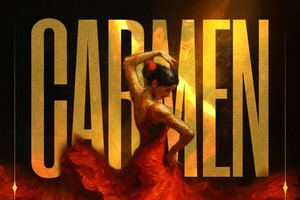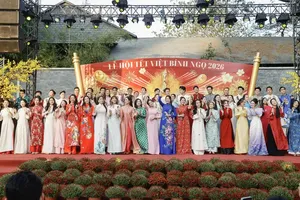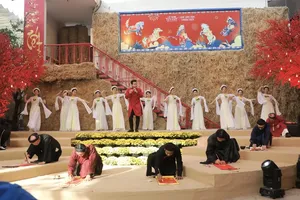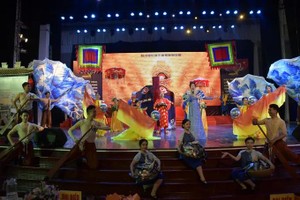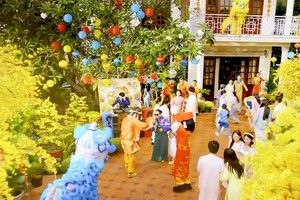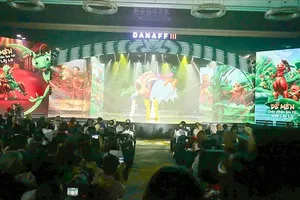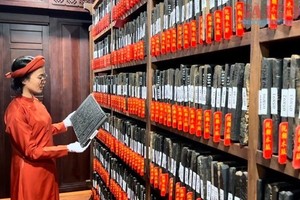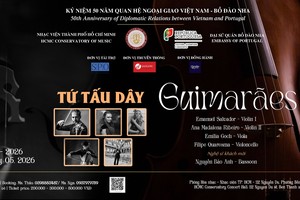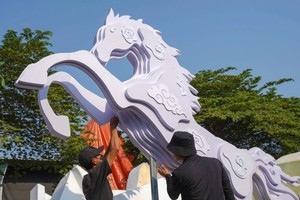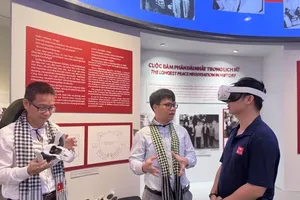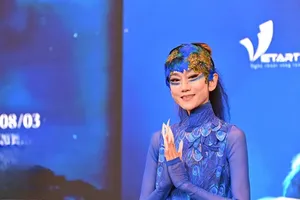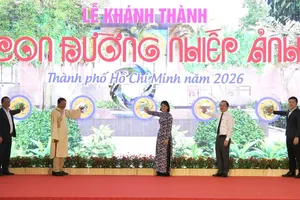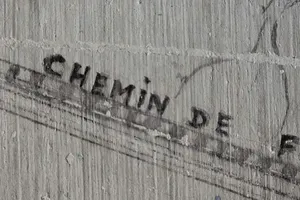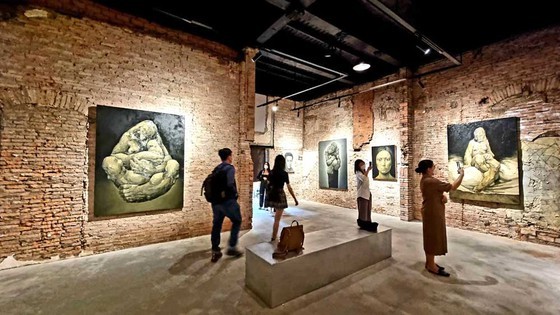 Works in exhibitions organized by professional associations, museums, or cultural management units, also serve as a basis for identifying authors in case of copied works (Photo: SGGP)
Works in exhibitions organized by professional associations, museums, or cultural management units, also serve as a basis for identifying authors in case of copied works (Photo: SGGP)
In the past few days, the dispute over the names of two contests with the same name Miss Peace Vietnam between the Golden Lotus Advertising and Trading Company (the Golden Lotus Company) and the Minh Khang Vietnam Trading and Service Company (Minh Khang Company) caused a stir in public opinion.
Accordingly, the Golden Lotus Company announced to organize Miss Peace Vietnam ( or Miss Grand Vietnam) meanwhile the Minh Khang Company also publicize the information of the Miss Peace Vietnam contest (Miss Peace Vietnam) hosted by the company.
It is worth mentioning that both units display copyright registration certificates on the name of the contest script and the logo of Miss Peace Vietnam.
Representative of Golden Lotus Company Pham Kim Dung on June 7 said her company has the official authorization of the organization Miss Grand International (the international unit that founded and administers the contest) to perform exclusively in Vietnam with the Vietnamese name of Miss Peace Vietnam. According to her, the company has had the copyright for the contest from the Copyright Office.
Furthermore, the name and logo are in such a whole. Therefore, she announced that the company is waiting for a reply from the National Office of Intellectual Property of Vietnam as it has submitted a complaint to the office. Lawyer Truong Thi Da Thao from Phan Law Vietnam Law Office affirmed that the Golden Lotus Company has had full legality to organize a contest named Vietnamese Miss Peace Vietnam. This is the only contest within the framework of Miss Grand International.
Meanwhile, prior, on June 6, a representative of Minh Khang Company Nguyen Thi Thanh Thuy said that the two completely different competitions in terms of form, content, and script when aiming for different criteria.
She added that currently, there are two copyright registration certificates, both issued by the Vietnam Copyright Office in connection with two contests, one for the Minh Khang Company on March 21, 2022, and one for the Sen Vang Company on April 8, 2022. Accordingly, Minh Khang Company will carry out necessary legal procedures to protect its legitimate rights.
The recent copyright infringement in the music field provoked controversies when many organizations and individuals exchange about the original concept of copyright for musical works.
ACV Entertainment Company which is holding the copyright over the song Ai chung tinh duoc mai (Who is forever in love) composed by musician Dong Thien Duc has just announced that many singers such as Dan Truong, Le Quyen, and Tung Duong perform this copyrighted song without permission.
Additionally, last April, many musicians such as Kai Dinh, Hua Kim Tuyen, and Duy Khang (members of the Chillies Band) accused singer Nam Em of singing their songs without asking for permission.
Musician Kai Dinh said that Nam Em used his exclusive song Minh yeu den day thoi ( We stop love, baby) to perform without asking for his permission. After the incident, Nam Em had to apologize and remove the work from YouTube. Some other singers explained the incident on their personal pages, while others kept silent.
Online platforms and social networks have opened up opportunities for artists to commercially exploit artworks but they also helped copyright infringers steal works blatantly.
Another case of copyright infringement was taken as an example. In October 2021, a musician ( or Party B) signed a contract with T.B. (or Party A) about exploiting songs he composed on several online platforms.
According to the contract, Party A agreed to provide and let Party B co-manage the V.C's Music account on The Backstage and Party A has the right to use and commercially exploit all of Party B's records.
The parties will divide the revenue as follow Party A enjoys 30 percent while Party B 70 percent. The Backstage is a package of music management and distribution software for artists and music labels, specifically software provided by Believe Music (a global music distribution company).
The Backstage must represent all direct and derivative revenue from the recordings. From December 2021, Party A started trading Party B's records by releasing them on domestic and international music platforms.
However, Party A has not shared the revenue and profit as per the contract. After discovering that there was a lack of transparency in the financial statements, the author complained to the company and on May 17, this company unilaterally deleted the account on The Backstage of Party B. The musician said that through a lawyer, he has to file his complaint in Hanoi because the company's headquarters is there, and it takes a lot of time for him.
Regarding the story of the painting Goc khue phong ( The corner of the room) by artist D.Q. which SGGP newspaper published on June 7, it is difficult to apply the law specifically, though it can be seen that the content of the picture is copied from a movie scene.
Talking about the case, Chairman of the Art Association Ho Chi Minh City Fine Arts painter Nguyen Trung Tin admitted that he did attend the exhibition and look at the above work, obviously, there is a copy; however, it is almost difficult and impossible to sue. At present, there is no Law on Fine Arts while the Decree 113 is being applied and continuously adjusted to suit the development trend of contemporary art.
Another copyright infringement-related case of a series of three paintings printed from digital art paintings by artist Huynh Minh Thong, Founder of Xon Xao Studio, has not yet been resolved. Three paintings are being hung in a cafe in Hanoi. The artist said that he has not sold the above series of works so far, which means that someone has illegally used the copyright of my paintings.
The owner of the cafe doesn't know that the paintings hanging in the shop do not have copyright because they were given as gifts, and the person who gave the set of paintings to the shop did not know that it was a stolen painting, said artist Huynh Minh Thong. In the digital art world, it is quite common to upload works to Behance, an online social network belonging to Adobe Company - display products of images, and technical graphics as well as allow users to create accounts so that infringers have had more chance to violate copyright law.
Artistic work has copyright protection the moment it is created. Art does not have a certain pattern, because creativity is unlimited. However, in order to protect the rights of authors and collectors, there should be more specific regulations on authors and works and appropriate sanctions for acts of copying and plagiarism.

